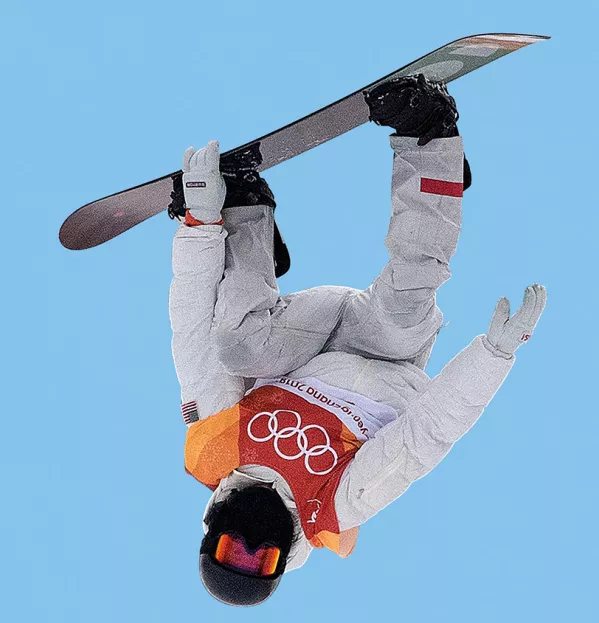“Winter is here,” I tell Mrs Eddison. It’s February half-term and I’m hoping to hunker down in front of the television with an après-school mug of tea and some chocolate Hobnobs. Mrs Eddison is yet to be convinced that this is a good use of my time.
“Maybe we can enjoy it together?” I insist. “Think of the fierce battles and deadly confrontations taking place in a world of snow and ice. It’ll be like watching Game of Thrones!”
The Winter Olympics are like no other event in the sporting calendar. What inspires people to climb up a mountain and throw themselves down it in several life-threatening ways is beyond the bounds of my understanding. I suspect it’s the adrenaline rush created when the full force of gravity meets the least force of friction. I can only equate it to meeting the full force of Year 5 on a wet Friday afternoon.
After some slalom-like negotiating, a compromise is agreed. In return for completing several outstanding domestic commitments, my viewing parameters are established. For two hours every morning (unlimited viewing after midnight), I will gaze in wonder as the brave, the bold and the mentally unstable compete across a range of events. I prioritise downhill racing, ski jumping and anything that takes place on the bobsleigh track.
But it’s the less traditional snowboarding events that really capture my imagination. Watching chilled-out kids raising a middle finger to the laws of possibility, yawning in the face of death and scaring the salopettes off their parents is inspiring. Only the high of Lizzy Yarnold taking gold in the skeleton is more thrilling than seeing Billy Morgan land a front-side 1440 triple with mute and tail-grab to claim bronze in the Big Air.
Raising attainment
Great Britain has its best medal tally. It’s a wonderful achievement, but - like most primary teachers - I am conditioned to believe it’s probably not good enough and that we must continue to raise attainment. Why does Norway (population 5 million) have 39 medals while Great Britain (65 million) has only four?
Britain’s lack of a proper winter cannot be used as an excuse for underachievement. We rarely have a proper summer, but it didn’t stop us coming second in the medal table at the 2016 Rio Olympics. What we lack in natural resources can be overcome through hard work, determination and a target-setting culture. And the first slithering steps along the nursery slope to success must take place in primary schools.
In order to nurture appropriate skills, safeguarding rules should be relaxed. There will be no more gritting ice slides, no more indoor playtimes because of wintry weather, and school closures due to snow will be abolished. Only when children are forced to battle through 6cm of slush to get to lessons will they develop the resilience to compete in endurance events such as Nordic skiing.
I run my ideas by Mrs Eddison, but they are met with disinterest. With the Olympics (and my half-term break) over, she refuses to be snow-bored any longer.
Steve Eddison is a teacher at Arbourthorne Community Primary School in Sheffield
